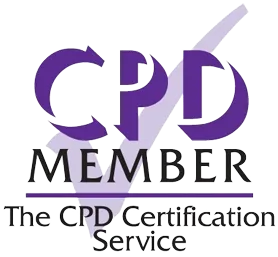29 Mar 2025
Recommended
Minimum 46 mins
Course
Access
Certification
Voiceover

Attention Deficit Hyperactivity Disorder (ADHD) is a prevalent neurodevelopmental condition affecting individuals across all age groups. It impacts daily functioning, educational and professional achievement, relationships, and overall quality of life. The ADHD Awareness course provides healthcare professionals, educators, and caregivers with a comprehensive understanding of ADHD, including its core symptoms, diagnosis, aetiology, and management strategies.
This course delves into the neurobiological, genetic, and environmental factors underlying ADHD, as well as its common comorbidities. Participants will explore evidence-based treatment options, including pharmacological and non-pharmacological interventions, while addressing ADHD management across the lifespan. Emphasis is placed on promoting empathy, enhancing communication, and providing tailored support to individuals with ADHD and their families in diverse settings.
By completing this course, participants will be empowered to apply evidence-based approaches, foster understanding, and improve outcomes for individuals living with ADHD.

 £25
£25
Learning Outcomes.
By the end of this course,participants will be able:
To understand the core symptoms, diagnostic criteria, and subtypes of ADHD as outlined in UK and international guidelines.
To explore the neurobiological, genetic, and environmental factors contributing to ADHD.
To examine the impact of common comorbidities on the diagnosis, treatment, and management of ADHD.
To evaluate evidence-based treatment options, including pharmacological and non-pharmacological approaches.
To develop strategies for managing ADHD across healthcare, educational, and home settings.
To enhance communication and empathy when working with individuals with ADHD and their families.
Course
Contents.
01
Symptoms, types, and prevalence in the UK and globally.
03
Genetic, neurodevelopmental, and environmental contributors.
05
Unique presentations in childhood, adolescence, and adulthood.
08
Addressing medication adherence, sleep disturbances, and caregiver challenges.

06
NICE guidelines for pharmacological and non-pharmacological therapies.
09
Advances in ADHD care and innovative treatment options.
02
Diagnostic criteria, tools, and identification of comorbidities.
04
Brain function, neurodiversity, and neuroimaging insights.
07
Gender differences, cultural perspectives, and adult ADHD.
10
Tools for empathy-driven communication with individuals and families.
This course equips professionals with the knowledge and skills to support individuals with ADHD through evidence-based, compassionate care. By exploring the condition’s underlying causes, diverse presentations, and management strategies, participants will be able to foster understanding and provide tailored support that improves quality of life for individuals with ADHD and their families.
 Summary
Summary


